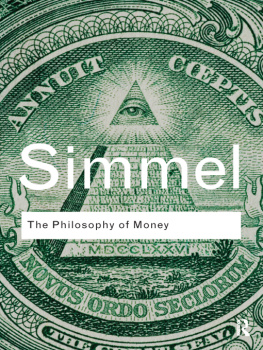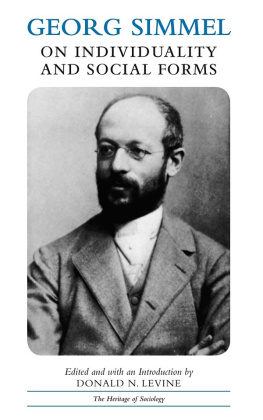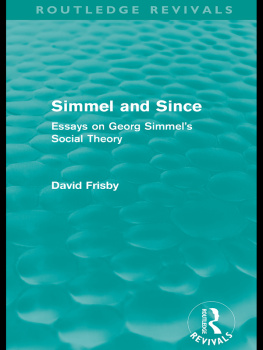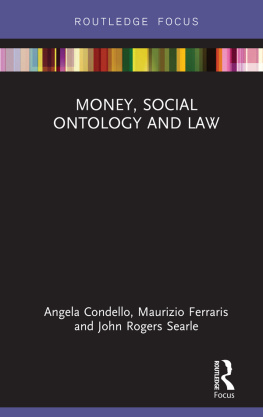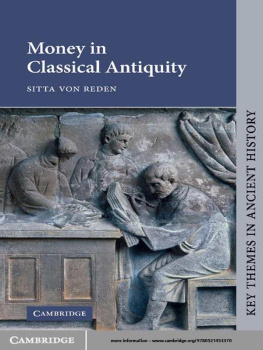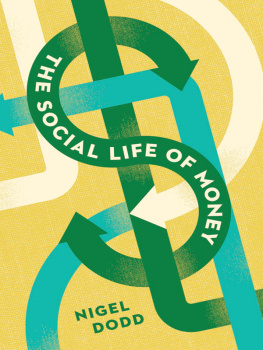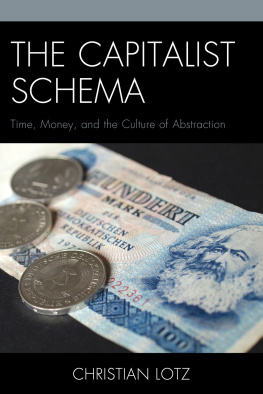The Philosophy of Money
We should all be grateful for this translation. It must have been extremely hard work, but it shows no trace of it. Indeed, it positively sparkles.
Alan Ryan, The Guardian
Its greatness lies in ceaseless and varied use of the money form to unearth and conceptually reveal incommensurabilities of all kinds, in social reality fully as much as in thought itself.
Fredric Jameson
A CKNOWLEDGEMENTS
The first two chapters and part of the third chapter were translated by Tom Bottomore and the remainder by David Frisby. I would like to thank Glyn Adey for supplying me with a draft translation of some sections of the present volume. Our greatest debt must be to the late Kaethe Mengelberg who originally provided a draft of the whole volume. Without the assistance of this earlier work, it is doubtful whether the present translation could have been completed. This translation is therefore dedicated to her memory.
I would also like to thank Pru Larsen for the onerous task of typing the manuscript in its final version. I am grateful to the Leverhulme Trust for awarding me a Faculty Fellowship in European Studies which enabled me to undertake the research for the introduction to this translation at the University of Konstanz, and to Professor Horst Baier for his assistance in its preparation.
David Frisby
Glasgow
1978
I am grateful for a grant from the Nuffield Foundation in 1987 which enabled me to research some of the new editorial material at Konstanz University. I also wish to thank Heinz-Jurgen Dahme and Klaus Christian Khnke for their assistance. Thanks also to Ann Adamson for typing the additions to this edition.
David Frisby
Glasgow
1990
I wish to thank Maureen McQuillan for typing the new preface to this edition.
David Frisby
Glasgow
2003

Routledge Classics contains the very best of Routledge Publishing over the past Century or so, books that have, by populr consent, become established as classics in theirfield. Drawing on a fantastic heritage of innovative writing published by Routledge and its associated imprints, this series makes available in attractive, affordable form some of the most important works of modern times.
For a complete list of titles visit www.routledge.com/classics
INTRODUCTION TO THE TRANSLATION
Shes got an indiscreet voice, I remarked.
Its full of I hesitated.
Her voice is full of money, he said suddenly.
That was it. Id never understood before.
It was full of money that was the inexhaustible charm that rose
and fell in it, the jingle of it, the cymbals song of it.
F. Scott Fitzgerald, The Grea Gatsby
I
Gustav Schmoller, probably the most important of the younger members of the Historical School of political economy in Germany, relates that on the 20th May 1889, Dr. Simmel delivered a paper on the Psychology of Money in my political science seminar . It was the germ of the important book which now appears before us as The Philosophy of Money . Weber sought to review Simmels work as a sociologist and theorist of the money economy. Weber subsequently acknowledged some of his debt to Simmel in his published work, though most often this acknowledgment was tempered by severe criticism. Yet like many of Simmels contemporaries, Weber clearly found it difficult to locate Simmels work within some readily recognized discipline and tradition.
One contemporary, writing a long obituary review of Simmels works, argues that The Philosophy of Money is a transitional work in the sequence of Simmels writings from a concern to establish an empirical sociology to the attempt to establish a philosophy of culture and ultimately, in his last works, a metaphysics of life.
the aim of the young thinker was certainly not to establish and develop a philosophical standpoint as such. In his youth he strove towards a sociology whose distinguishing feature he saw not so much in the uncovering of a new reality as in the development of a method which would permit a new total view of the historicalsocial world.
Yet this goal was not the only one present in The Philosophy of Money . Though it did concern itself with psychological and sociological dimensions of the emergence and development of the money economy:
its ultimate aim lay yet further beyond them; it was, as Simmel himself formulated it, to extract from the surface of economic events a way into the ultimate values and importance of all that is human. An economic element, such as money, should reveal itself as a timelessly valid symbol of the essential forms of motion themselves.
In this important respect, then, Simmels Philosophy of Money not only embraces a sociological concern for the effects of a money economy upon social and cultural life but also reveals Simmels attempt to establish a philosophy of culture and, ultimately, a metaphysics of life.
It is perhaps this diversity of intentions in Simmels work that made it difficult for his contemporaries to gain an overall view of The Philosophy of Money and this may have contributed to the relative neglect of this work compared with Simmels other studies. Karl Jol expressed this difficulty when he suggested that Simmels Philosophy of Money will be ill understood because money meant more to him than money, because it became for him a symbol of the world, an image of exchange as a whole, of the infinite interrelationship which ultimately extended itself into the dominant principle of a world view.
there exists not only a great number of specialists in philosophy who clearly abhor him the typical sectarian character of the philosophical schools of the time, to none of which Simmel belongs, makes this only too intelligible (quite apart from other motives that may be involved) but there are also scholars who are to be taken very seriously in disciplines that border on Simmels sociological field of work who are inclined to acknowledge Simmels scholarship on certain details but to reject his work as a whole. Among economists, for example, one can experience outright explosions of rage over him and from that same circle of specialists has come the statement that Simmels art is ultimately a matter of dividing the air and then uniting it again.
This account of the lack of full academic recognition of Simmels work the year after the publication of The Philosophy of Money , Simmel was awarded the title of Ausserordentlicher Professor at the University of Berlin, but this honorary At the time of the publication of The Philosophy of Money after fifteen years at Berlin University and with many other works to his credit, Simmel was merely a Privatdozent which meant, in this period, that he was an unpaid lecturer who relied upon students fees as remuneration. Only in 1914 did Simmel receive an academic chair at Strasbourg University where he remained until his death in 1918. In this double sense, then, Simmel remained, as Coser puts it, a stranger in the academy.
Yet if we survey the contemporary response to The Philosophy of Money by those writers who made a genuine attempt to understand the importance of Simmels work and who were not so hide-bound by the restrictiveness of a purely academic standpoint then it is apparent that many saw it as a work of major significance. It is all the more surprising then that this work, with a few exceptions, failed to make a lasting impact upon a whole range of writers, disciplines and interests in Germany. Elsewhere, since the whole work was almost never translated, its impact was even less. It is probably true to say that Simmel founded no school or group of followers in Germany, though Litt, Vierkandt and von Wiese, in particular, were clearly influenced by his work.

